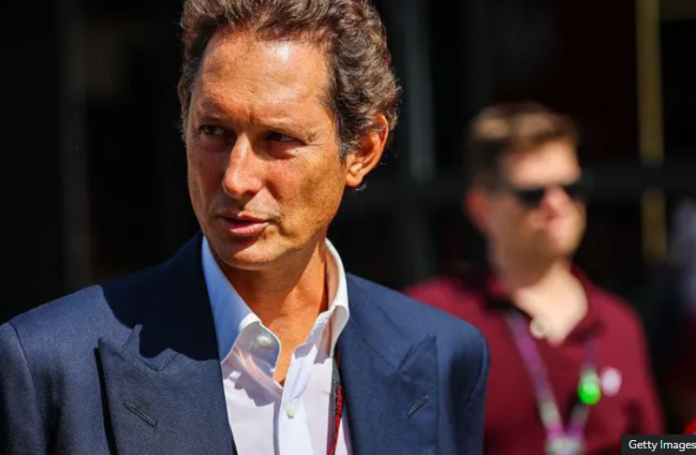John Elkann, chairman of both Ferrari and Stellantis and heir to Italy’s influential Agnelli automotive dynasty, has agreed to perform one year of community service as part of a €183 million settlement resolving a complex inheritance tax dispute with Italian authorities.
The agreement, announced by Turin prosecutors, requires Elkann and his siblings Lapo and Ginevra to jointly pay €183 million to Italian tax authorities while ending criminal investigations into alleged tax fraud related to their grandmother’s estate.
The settlement closes all investigations into tax evasion on an estate valued by Italian authorities at approximately €800 million, according to prosecutors. The case centered on the 2019 death of Marella Caracciolo, widow of legendary Fiat patriarch Gianni Agnelli, with authorities claiming the siblings failed to properly declare inheritance assets and income.
Elkann’s legal team emphasized that the settlement does not constitute an admission of guilt. His lawyer, Paolo Siniscalchi, described the agreement as providing an opportunity to bring “this painful affair to a swift and definitive close.” Under the plea bargain arrangement, criminal charges against Elkann will be suspended during his community service period and dropped entirely upon successful completion.
Elkann must now propose to judicial authorities an institution where he will perform his community service, which could include work at elderly care facilities or drug addiction treatment centers. The arrangement follows standard Italian judicial procedures for resolving white-collar criminal cases through alternative sentencing.
The inheritance dispute reflects deeper fractures within one of Europe’s most powerful business dynasties. The case intersects with an ongoing civil lawsuit filed by Margherita Agnelli, mother of John, Lapo, and Ginevra, who has contested inheritance agreements signed in 2004. Margherita argues these arrangements unfairly directed wealth toward her three eldest children while disadvantaging her five younger children from a second marriage.
Prosecutors had originally accused the siblings of concealing approximately €1 billion in assets and €248.5 million in income, claiming their grandmother maintained Swiss residency at her death rather than Italian domicile. This distinction carries significant tax implications under both countries’ inheritance laws.
The settlement arrives at a critical time for both Ferrari and Stellantis, where Elkann serves as executive chairman. Ferrari shares have gained over 35% this year, while Stellantis faces challenges integrating multiple automotive brands across global markets. Neither company has indicated the personal legal matter will affect corporate governance or operations.
Gianni Agnelli, who died in 2003, transformed Fiat from a Turin-based manufacturer into a global automotive empire before his grandson John emerged as the family’s public representative. John Elkann assumed Ferrari’s chairmanship in 2018 and Stellantis leadership in 2021 following the merger creating the world’s fourth-largest automaker.
The broader Agnelli family wealth, estimated in billions of euros, encompasses automotive manufacturing, media properties, and various industrial investments across Italy and internationally. The family’s Exor holding company controls significant stakes in Ferrari, Stellantis, Juventus Football Club, and other enterprises.
Italian tax authorities have intensified enforcement efforts targeting wealthy families and complex international inheritance structures in recent years. The Elkann case represents one of the largest settlements involving prominent business figures, potentially setting precedents for similar investigations.
Margherita Agnelli’s legal representatives welcomed the conclusion of criminal proceedings while noting that civil litigation over Gianni Agnelli’s estate distribution continues. The separate lawsuit seeks to redistribute inheritance assets more equitably among all his grandchildren.
For John Elkann, the settlement removes a significant legal overhang that has shadowed his leadership of two iconic automotive brands. The agreement allows him to focus on strategic challenges facing both companies amid the industry’s transition toward electric vehicles and sustainable mobility solutions.
The case highlights ongoing tensions between traditional family business structures and modern tax compliance requirements, particularly for dynasties with complex international holdings. Italian authorities continue scrutinizing similar arrangements involving other prominent business families.
Source: newsghana.com.gh











